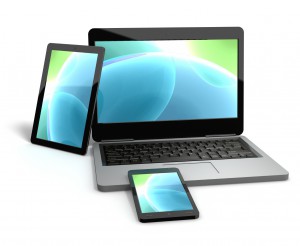Is It Time to Go Paperless at Work?
On the Superior Business Solutions blog, my brother and V.P. Tim English wrote a great piece about the realities of going paperless. Many businesses declare the environmental benefits of using less paper, or even no paper, but going paperless is not a universal panacea that will fix everything. It turns out going paperless may not be all it’s cracked up to be.
Something Needs to Fill the Void
 Using less paper is great, but something needs to take the place of written notes and memos. That’s where desktop and laptop computers, tablets, mobile phones and data transmission networks come into play. Gadgets and Wi-Fi certainly make life easier, but these devices have an environmental impact.
Using less paper is great, but something needs to take the place of written notes and memos. That’s where desktop and laptop computers, tablets, mobile phones and data transmission networks come into play. Gadgets and Wi-Fi certainly make life easier, but these devices have an environmental impact.
Electronics require Rare Earth Elements (REEs), which are a series of chemical elements found in the Earth’s crust. Neodymium is one of the more popular elements and is commonly used in batteries, and electronics are no good without batteries. REEs pose an environmental risk because they are extracted through deep open-pit mining, which essentially utilizes a lot of fossil fuels, chemicals and solvents and leads to increased air and water pollution.
Very few electronics are recycled. Some estimates indicate 10 percent or fewer or cell phones are recycled; that leaves 90 percent that probably end up in landfills. REEs do not belong in landfills and can cause environmental harm if improperly disposed of. Electronics are built to last and hold up when used daily, but this is bad news for landfills since these items will not breakdown.
The Truth About Paper
Historically, paper production has not always been a very eco process and even today paper production has environmental implications from cutting down trees, burning fossil fuels to transport raw materials and using additional resources during the production process. There have also been a lot of improvements made in the process from sustainably managed forests and the use of renewable energy during production. Paper is also one of the most recycled materials in the U.S., and can be recycled as many as seven times. Once the fibers are too small and paper can no longer be recycled the material is still biodegradable and can safely be absorbed into the Earth.
Finding Balance Between Going Paperless and Using Electronics
Using paper is not bad and using electronics is not bad. As a responsible consumer you can choose what impact you have from using paper made from FSC certified trees and recycling your old electronics. If you haven’t already, check out Tim’s post to learn more.
 SBS Brands
SBS Brands
Leave A Reply!